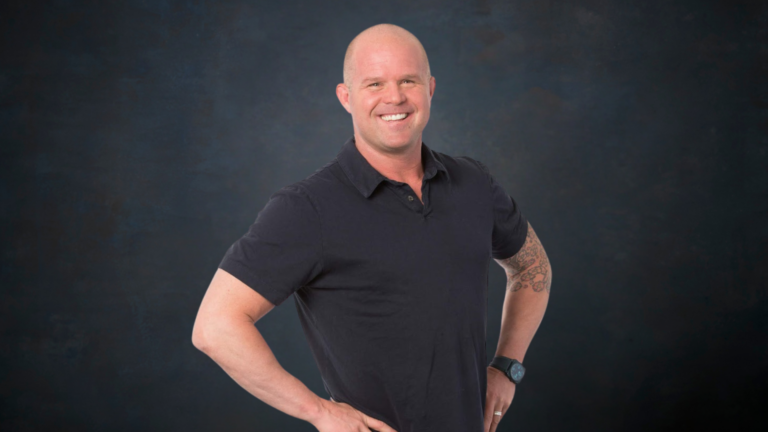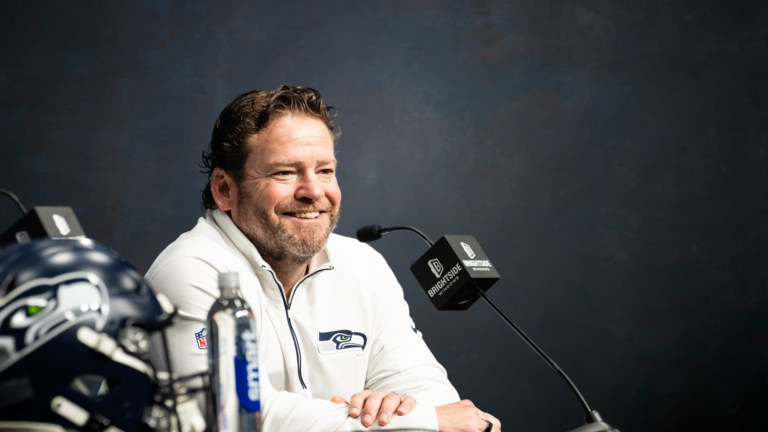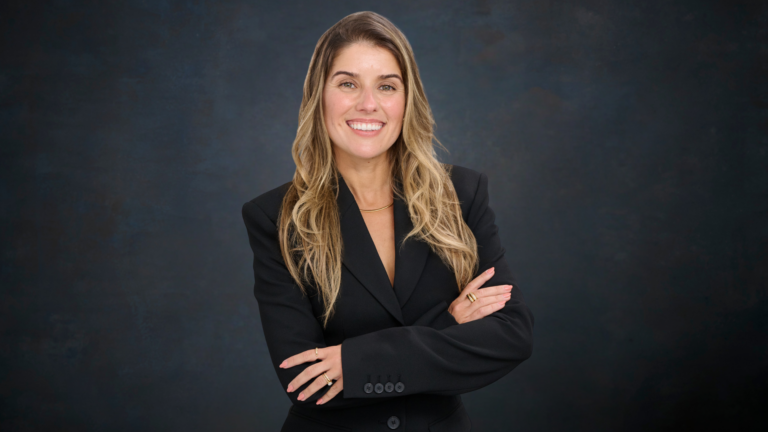This week’s conversation is with Dr. Andrew Weil, a world-renowned leader and pioneer in the field of integrative medicine.
He is a New York Times bestselling author of 15 books, the founder and director of the Andrew Weil Center for Integrative Medicine at the University of Arizona, and has been named one of the 100 most influential people in the world by TIME Magazine – and that doesn’t even begin scratch the surface of Andrew’s accomplishments and contribution to society throughout his incredible career.
To put it simply – the man is an absolute legend in his field.
We had Andrew on the podcast back in 2020 (that’s episode 250 if you’re looking to check it out), and I could not be more excited to have him back on for round two. This time around, we dive into the dawn of psychedelics – a topic that Andrew has been studying since his time at Harvard Medical School in the 1960s.
I’ve always been a little skeptical when it comes to adopting psychedelics (or any other external substance) as a tool to alter your internal state – so I was super curious and excited to learn more about the topic from someone as qualified as Andrew.
“If enough people have the right kinds of experiences on psychedelics, it can change global consciousness in the direction it has to change.”
In This Episode:
What is interesting to him right now?
I’m very involved with our center for integrative medicine and teaching. We’re training lots of health professionals in all the things that they didn’t learn in their conventional training. I’m always paying attention to the latest developments and nutrition research, especially around microbiome which is such a hot topic, and the connections between microbiome and mental health which is a whole new field. I’m also obviously very concerned with the pandemic, and ways we can keep ourselves healthy and resistant and our immune systems in good working order. I’m very interested in psychedelics and seeing them become mainstream, I think this is a long overdue and wonderful development.
How did his fascination with psychedelics begin?
I hadn’t smoked pot, my only experience really was with alcohol. But I began taking mescaline and I was just fascinated by it. I read everything I could on it, and it just seemed to me these were magical things and that they opened amazing doorways. This was when I was an undergraduate. At some point I had to give it up because I think if I followed that path I would never have gone to medical school, I needed to just focus on what I was doing.
The general effect psychedelics have had on him
A lot of my psychedelic experiences later really influenced my philosophy of medicine, and that a lot of the field of integrated medicine I owe to insights that I had on psychedelic experiences. For example, I really saw how powerful the mind-body connection is, and that things in the body and things in the physical world can be changed by changing what’s inside your head. That’s a very powerful thing to experience, and for me psychedelics are one of the ways of doing that.
Psychedelics and consciousness
I have had numerous experiences on psychedelics where I have really experienced the consciousness of what I thought of as inanimate things. I can remember being up a canyon in Arizona and I could see a basic energy flowing through my body. The same energy was in the rocks that I was lying on, and in the mountains and in the plants, there was some universal basic self-aware energy that was in everything. That was a very powerful insight, and it put me at great odds with the conventional scientific view that consciousness is just something that incidentally arises out of brain chemistry and ends when we die, I don’t believe that.
Psychedelics as the easy and effective option
There are brain mechanisms that are stimulated by psychedelic drugs, and it’s very likely that these could be stimulated in other ways, and maybe prolonged meditation is one of them. These may have a common pathway in the brain. But psychedelics are very easy, they don’t require work and they don’t require hours of meditation. For many people that is an easy doorway to go through. However, the psychedelic doesn’t guarantee that you’ll have that experience, it really is how the experience is structured, and this goes back to set and setting and why there’s such a need to have guides as these substances become more available.
The importance of set and setting
Set is your expectations, both conscious and unconscious. Those can be influenced by the expectations of the people you’re with, as well as other factors so it’s complex. The combined effects of set and setting can actually reverse pharmacological effects. You can give a stimulant to certain people under conditions of set and setting and they’ll fall asleep. You can give a sedative to people with conditions of set and setting where they become alert and stimulated. There’s huge room for those non-drug variables to shape the drug experience.
Microdosing vs. macrodosing
I don’t think we have good data on the effects of microdosing. We have a lot of testimonials from people, but we don’t have really solid data yet. With macrodosing, there’s accumulating research on very dramatic benefits. This is like a single experience or a few experiences, especially for drug resistant depression, very dramatic effect on PTSD, on obsessive compulsive disorder. It’s being well documented, I think it’s just a matter of time before these are made therapeutically available for those kinds of conditions.
Current drug options are not cutting it
The antidepressant drugs are just very poor, not great efficacy and also significant toxicity. The anti-anxiety drugs are terrible drugs that I think almost have no use at all. They’re highly addictive, interfere with cognitive function. We have a few psychiatric drugs that are useful, the ones that treat bipolar disorder I think those are useful. But the ones in most common use they’re just not very good, we need better methods. The promise of psychedelic therapy is it can be just a single dose that produces very lasting effects if the experience is structured properly.
Which psychedelics would he lay his bet on?
I’d say two. One is mushrooms, psilocybin and the other is MDMA. These are quite different. MDMA is not a classic psychedelic, it doesn’t cause the visual perceptual changes, but it’s very heart opening and produces a kind of centering effect that’s really amazing. But I think those two are the ones that are closest to getting approved and will be out there and available for therapeutic use.
Spiritual experiences
One other area that’s worth talking about is the potential of psychedelics to give people spiritual experiences. Now, a lot of spiritual teachers and religious leaders are very upset by people that say that. They say that these are artificial experiences, they’re not genuine spiritual experiences. I think that’s nonsense. I think that… Even at Johns Hopkins now where they’re doing research on psilocybin, they are documenting changes in people’s view of themselves and spiritual insights.
Changing global consciousness
Our world is in pretty desperate shape. In any direction you look, things are really bad out there, and they’ve gotten very significantly worse in recent years. I don’t know any way to turn things around except through a global change in consciousness. When I look out there, the only thing that I see that has the power potentially to do that is psychedelics. I think that if enough people have the right kinds of experiences on psychedelics, it can change global consciousness in the direction it has to change.
Although they are outside substances, the experience comes from within
The experience that you have when you take a psychedelic is coming from within you. My first book was called The Natural Mind, and that was the whole point of it is that these states of consciousness are inside us, and all the drug does is trigger them or release them or allow them to express themselves. The magic is not in the substance and that’s a mistake a lot of people make, they get into dependent relationships with these things. It’s your potential. But you may not discover how to do that without some trick.
Maximizing the experience
If you take a high dose of LSD in a New York subway on a day when you’re feeling anxious, the likelihood is you’re not going to have a spiritual experience. If you take a appropriate dose in a supportive natural setting, in the company of people who know how to guide these experience in the right direction, you’re much more likely to have a positive experience. On a physical level, these substances are I think the safest drugs we know about. You can’t kill people with LSD. Almost every drug we use in medicine, the lethal dose is not that far above the dose that we use therapeutically. You can’t calculate a lethal dose for these psychedelics. So on the physical level they are as nontoxic as you can get. The dangers are psychological, and those are totally related to set and setting and can be managed if they’re used appropriately.
Bad trips
I have had some really frightening experiences, which in retrospect had to do with I took them in the wrong circumstances and I should have known. But here’s a story you’ll like. When I was in my undergraduate days, when I was just doing an experiment with mescaline, there was one occasion there was a party of undergraduates and someone had gotten hold of some LSD. This was probably in 1961. Most people had never heard of LSD, and they never heard the word psychedelic. They gave this unsuspectingly to people it was put in some drink or other. When these people about 12 of them felt the effect of the drug, they thought they were getting food poison, that’s how they interpreted the physical sensation of the drug. They had no framework in which to interpret what was happening to them and that’s what they felt.
What do the next three years look like?
I think psilocybin and maybe LSD are going to be available for treatment of certain cases of depression, anxiety, MDMA for PTSD. I think that’ll be legally available. I think there are going to be more and more people experimenting with these things, either medically or non-medically. I think there’s lots of questions out there about are corporations going to try to take this over? Are people going to try to patent these things ripping off indigenous knowledge? There’s a lot, I don’t know how all this is going to play out. There are people trying to come up with synthetic analogs of these natural drugs, I don’t know how they’ll work. Anyway, lots of questions. It could be very chaotic. I really think the general trend is going to be good for our culture.
Ketamine
It is not a psychedelic. It’s unrelated to psychedelics, it’s a dissociative anesthetic related to PCP and it’s being used as a placeholder. People that have these clinics and use it to treat depression, but they’re counting on the legal availability of the true psychedelics, so it shouldn’t be confused with them…What I hear is that it can be very effective for treatment of depression, but that the effect doesn’t last so that it has to be repeated frequently. But really it is being used as a placeholder until psychedelics become available.
Are psychedelics addictive?
These have very low addictive potential, because if you try to take them frequently the things you’re looking for disappear very quickly. I have never met people who I would say are addicted to psychedelics, you just can’t take them that frequently.



